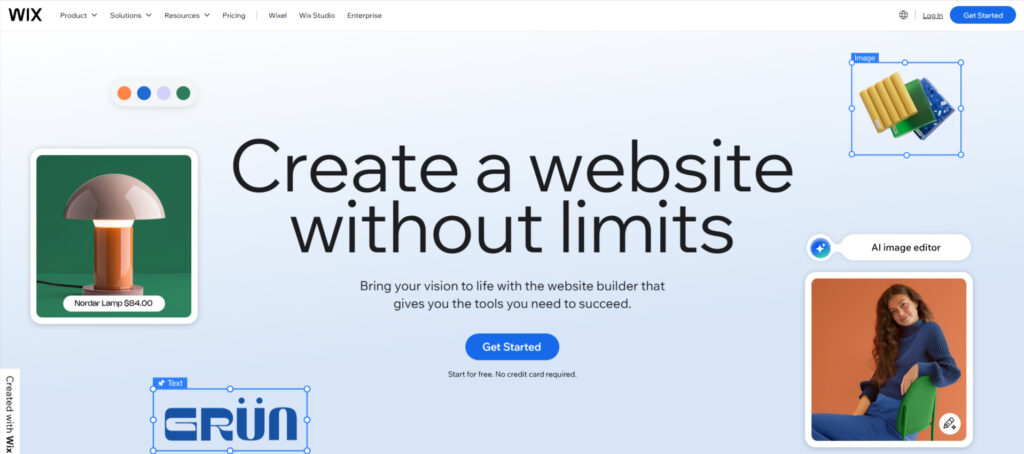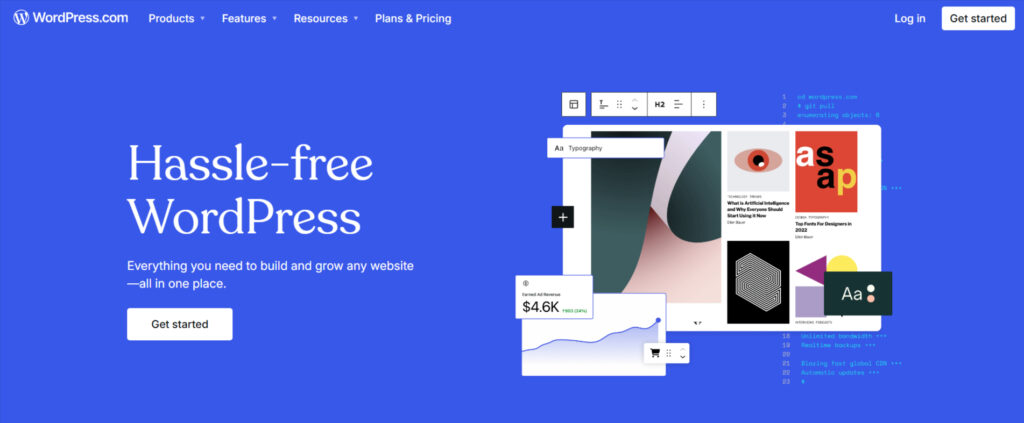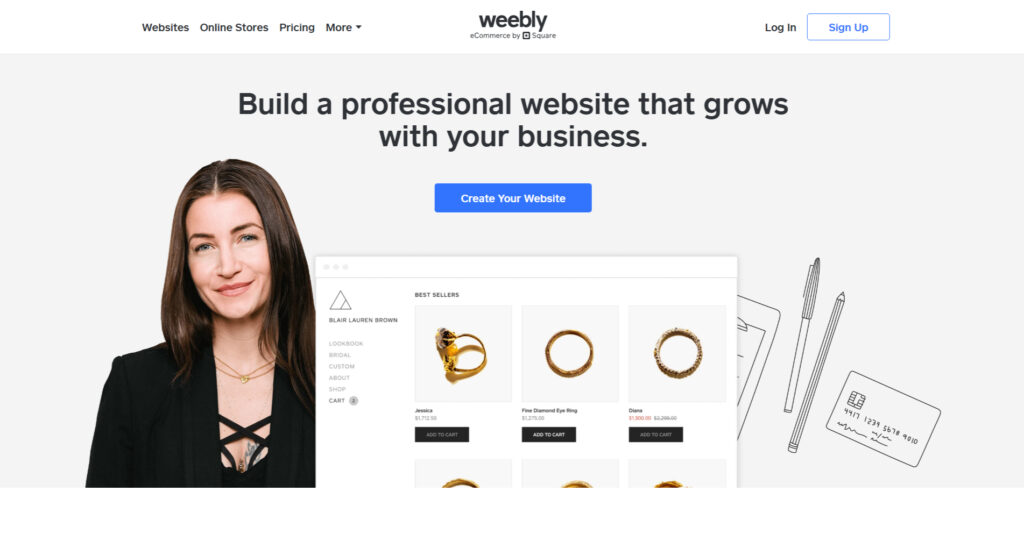Over 70% of consumers research businesses online before making purchasing decisions, yet many small businesses still lack a good website. The numbers give a clear insight that the barrier isn’t just cost, it’s the technical complexity and time investment traditionally required to build effective business websites. Numerous modern website builders have changed this landscape entirely, putting professional web design within reach of any business owner willing to invest a few hours of effort.
Small businesses need website builders that balance functionality with simplicity while keeping costs manageable. Some of the essential features include drag-and-drop editing, mobile-responsive templates, built-in SEO tools, e-commerce capabilities, and reliable customer support. On top of that, budget considerations are crucial since most small businesses operate with limited marketing funds. The ideal platform should offer excellent value without hidden fees, considering both monthly subscription costs and transaction fees for online sales. Wix offers the most user-friendly experience for small business owners without technical knowledge. The drag-and-drop interface allows instant customization of over 900 industry-specific templates, while specialized tools include booking systems, restaurant menus, and customer management features. The platform also shines for service-based businesses like salons, consultants, and fitness trainers who need appointment booking systems. Even better, its integration with popular business tools like Mailchimp, Google Analytics, and social media platforms makes it easy to manage all aspects of online presence from one dashboard. Squarespace excels at creating visually stunning websites with professional templates that maintain excellent design standards. The platform automatically optimizes images and provides superior galleries, making it ideal for photographers, fashion brands, restaurants, and creative services. Shopify specializes in online retail with comprehensive tools for product management, order processing, and multi-channel selling. The platform handles complex requirements like tax calculations, shipping integration, and abandoned cart recovery while supporting sales through websites, social media, and physical locations. The Shopify platform excels in handling complex product variations, digital downloads, and subscription services. Built-in marketing tools include discount codes, email marketing, and social media advertising integration, while detailed analytics help track customer behavior and optimize sales funnels. WordPress provides powerful content management ideal for businesses prioritizing blogging, educational content, or thought leadership. The platform includes advanced formatting options, media libraries, and SEO optimization features with access to thousands of themes and plugins. The platform offers an extensive plugin ecosystem for adding functionality like membership sites, online courses, and advanced contact forms. Multi-site management capabilities allow businesses to run multiple websites from one account, making it cost-effective for businesses with various brands or locations. Weebly focuses on simplicity with a straightforward drag-and-drop editor and minimal learning curve. Pre-built sections for services, testimonials, and contact information speed up website development, while basic e-commerce features handle small product catalogs and integrate with Square for retail businesses. The platform includes built-in lead capture forms, contact management, and email marketing tools to help convert visitors into customers. SEO guidance walks users through optimization steps, while the mobile app allows real-time website management and customer communication on the go. GoDaddy Website Builder uses artificial intelligence to create customized websites based on business type and goals. The guided setup process generates relevant content and imagery, allowing businesses to launch professional websites within hours rather than days. The AI-powered design suggestions adapt to business type and local market needs, while automated social media posting helps maintain online presence across multiple channels. It even features a built-in appointment scheduling and online payment processing, making it particularly suitable for local service businesses and consultants. Start by identifying primary website objectives and current business size, considering growth projections that may require platform scalability. Evaluate technical expertise within the organization to determine appropriate complexity levels. Test platforms through free trials or money-back guarantees, creating sample content, and testing mobile responsiveness. Calculate total ownership costs over multiple years, including subscription fees, add-ons, and potential migration costs to ensure long-term value. Moiz Banoori is a seasoned Digital Marketing professional with over eight years of expertise in content creation and digital journalism. At REDLUMB, he spearheads teams to craft impactful SEO strategies that drive online growth and visibility. With a background in journalism, Moiz leverages his expertise in digital marketing to develop effective strategies that boost online visibility and help clients achieve their goals.
What Makes a Best Website Builder for Small Businesses?
Comparison Table
Website Builder Best For Key Features Ease of Use E-Commerce Ready SEO Tools Design Flexibility Scalability Support Quality
Wix Beginners & Versatility 900+ templates, drag-and-drop editor, booking tools, app marketplace, customer management Very Easy Yes (Basic) Yes (Built-in) High Moderate 24/7 support available
Squarespace Design-Focused Businesses High-quality templates, image optimization, galleries, blogging tools, built-in analytics Easy Yes (With Plan) Yes Very High Moderate Email & live chat
Shopify E-commerce Businesses Product management, multi-channel selling, shipping & tax tools, cart recovery, POS integration Easy Yes (Full Suite) Yes Moderate High 24/7 expert support
WordPress.com Content-Heavy Businesses Blog and media tools, theme customization, plugin access, SEO customization, scheduled posts Moderate Yes (With Upgrade) Yes (Advanced) High High Community & chat
Weebly (by Square) Simplicity & Speed Simple editor, pre-built sections, small catalog support, Square payment integration Very Easy Yes (Basic) Yes (Basic) Moderate Limited Email & chat support
GoDaddy Website Builder Fast Setup & Automation AI-driven builder, guided setup, instant content generation, mobile optimization Very Easy Yes (Basic) Yes (Basic) Low Limited 24/7 phone & chat
Wix – Best Overall for Beginners

Squarespace – Best for Design-Focused Businesses

Shopify – Best for E-commerce Focus

WordPress.com – Best for Content-Heavy Businesses

Weebly – Best for Simple Business Websites

GoDaddy Website Builder – Best for Quick Setup

Making the Right Choice





